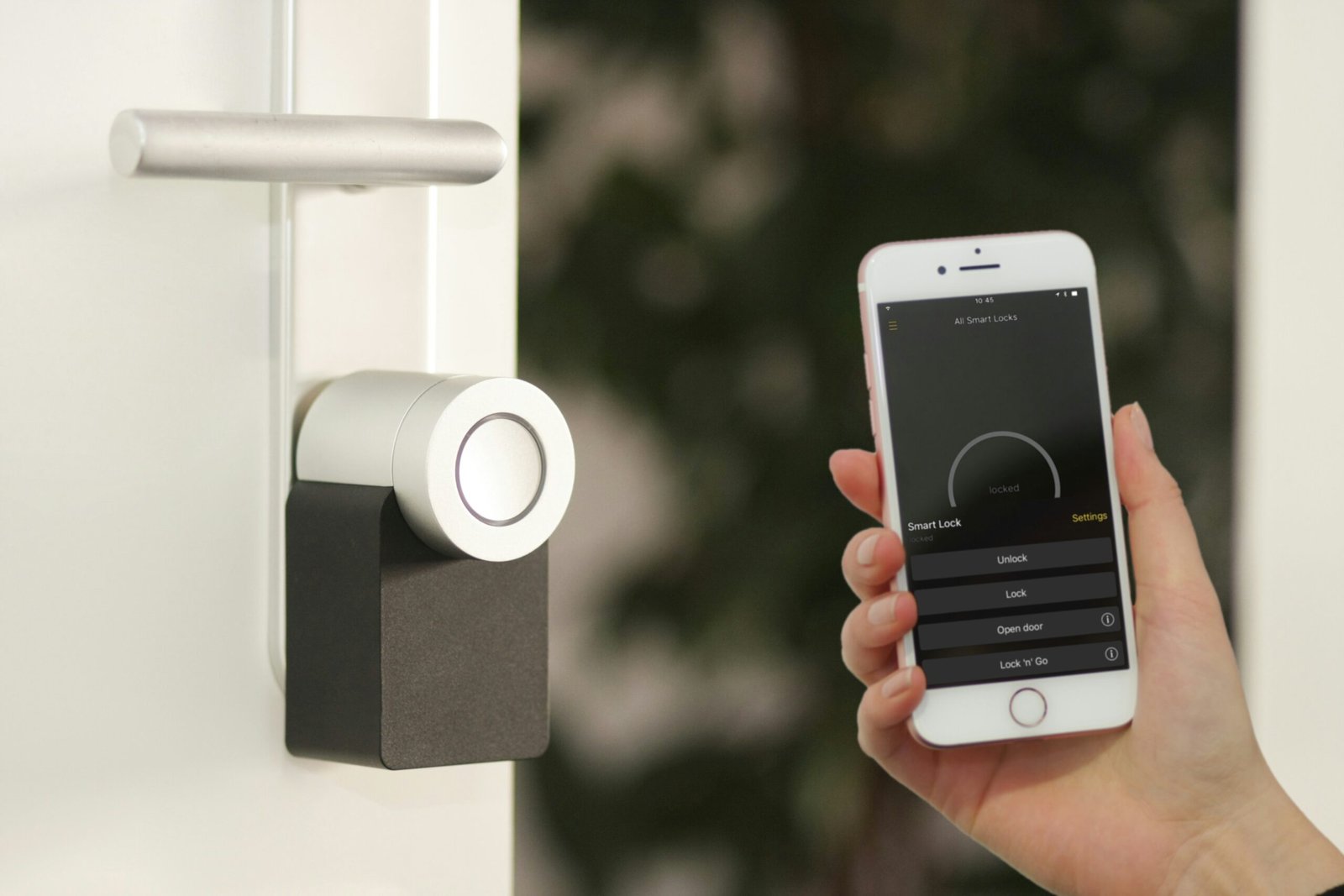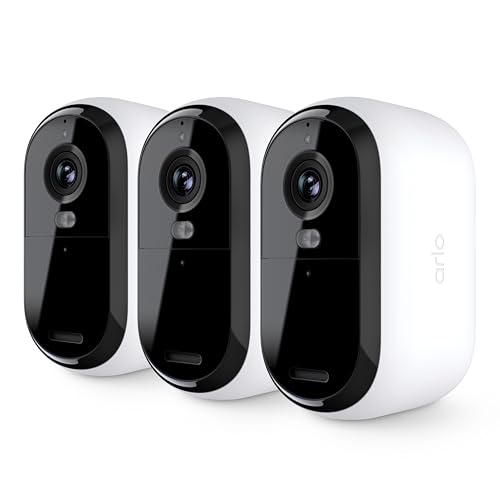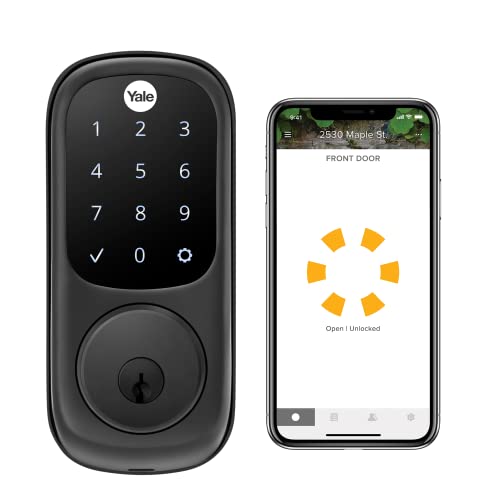
Introduction to Smart Home Security
In the digital era, ensuring the safety of our homes has taken on new dimensions with the advent of smart home security systems. The integration of technology into everyday living has not only simplified our lives but also revolutionized how we approach home protection. As smart devices become increasingly prevalent, homeowners are beginning to recognize the advantages these technologies offer in enhancing security measures.
Smart home security encompasses a wide range of devices designed to protect properties from intrusions, fires, and other threats. Central to these systems is the ability to monitor one’s home remotely, which significantly adds an extra layer of safety. Homeowners can now utilize their smartphones or tablets to check feeds from security cameras, receive alerts, and even control access points, all from virtually anywhere. This ability to stay connected to one’s home not only provides peace of mind but fosters rapid response capabilities in emergency situations.
Moreover, modern smart security solutions offer real-time alerts that notify users of suspicious activities, ensuring proactive rather than reactive responses to potential threats. The integration of various smart devices—such as doorbell cameras, motion detectors, and smart locks—allows for a comprehensive approach to home security. This interconnectedness can lead to more effective protection, as each device can communicate and work together to create a robust security ecosystem.
Additionally, the capacity for automation within smart home security systems lets homeowners create customized security settings suitable for their specific needs. From scheduling when to activate lights or locks to programming different alerts for various family members, the possibilities are extensive. As we delve deeper into the world of smart home security, it is clear that adopting these innovative solutions can significantly enhance the safety and security of any residence.
Criteria for Selecting Smart Home Security Devices
When considering the best smart home security devices, it is essential to evaluate certain criteria that can significantly impact your choice. One of the primary factors to assess is ease of installation. Many homeowners prefer devices that can be set up without professional assistance, ensuring a hassle-free experience. Look for products that offer user-friendly installation instructions or those that boast a plug-and-play functionality to save time and effort.
Compatibility with existing smart home ecosystems is also critical. A smart home security device should seamlessly integrate with other devices you may already own, such as smart lights, locks, and home assistants. This integration enhances the functionality of your system and provides a more cohesive user experience. Before purchasing, check compatibility with popular smart home ecosystems like Google Home, Amazon Alexa, or Apple HomeKit.
Feature sets can significantly influence your decision-making process. Essential features such as motion detection, night vision, and two-way audio should be prioritized, as they enhance the effectiveness of your security system. Motion detection alerts you of any unusual activity, while two-way audio allows for communication with visitors or intruders, giving you peace of mind while you’re away.
Cost-effectiveness is another important factor to consider. While there may be a temptation to opt for the most affordable options, consider the long-term value. Higher-quality devices may entail higher upfront costs but can lead to fewer replacements and repairs over time. It is also wise to read customer reviews and testimonials to ascertain the performance and reliability of the devices you are considering. Furthermore, understanding warranty and customer support options can safeguard your investment, ensuring assistance if issues arise.
Top 5 Smart Home Security Devices
The rapid advancement of technology has led to the development of various smart home security devices aimed at providing homeowners with peace of mind. Here, we will explore five of the most effective devices available on the market today, offering insights into their key features, benefits, and potential drawbacks.
Smart Security Cameras: These devices are essential for monitoring your property in real-time. Modern smart security cameras offer high-definition video, night vision, and motion detection capabilities. Integration with mobile apps allows homeowners to receive alerts and view live feeds from anywhere. However, they may require a stable internet connection, and some models may have recurring subscription fees for storage.
Smart Doorbells: A smart doorbell not only allows for remote communication with visitors but also enhances security by providing real-time video of the entrance. Many models feature motion sensors and two-way audio, enabling homeowners to interact with delivery personnel or visitors. Drawbacks may include installation complexities and potential privacy concerns, particularly with how video data is managed.
Smart Locks: These devices replace traditional keys with smart technology, allowing homeowners to lock and unlock their doors using smartphones or voice commands. Smart locks often offer features like temporary access codes for guests and activity logs for monitoring who enters the home. However, reliance on batteries can be a concern, as a dead battery may prevent access.
Motion Sensors: Motion sensors can detect movement within or around the home, providing an added layer of security. They can trigger alarms, send notifications, or integrate with other smart devices to activate lights or cameras. Nonetheless, false alarms can occur due to pets or environmental factors, and proper placement is crucial for effectiveness.
Alarm Systems: Comprehensive alarm systems provide complete home coverage, often incorporating multiple devices for enhanced security. They typically offer features like noise alerts, remote control via smartphones, and integration with emergency services. The key drawback can be the cost associated with installation and potential monthly monitoring fees.
By considering the unique features and limitations of each of these smart home security devices, homeowners can make informed decisions tailored to their security needs, ultimately enhancing their property’s safety.
Tips for Maximizing Your Smart Home Security System
Smart home security systems offer numerous advantages, but their efficacy can be significantly enhanced through effective strategies and practices. One critical tip is to ensure optimal placement of cameras and sensors. Positioning cameras at entry points such as doors and windows can effectively minimize blind spots and provide comprehensive visual coverage. Additionally, installing motion sensors in high-traffic areas allows for early detection of unauthorized access, further enhancing the security measures of your home.
Another essential practice is to stay current with firmware updates for your devices. Manufacturers frequently release updates that address vulnerabilities, improve performance, and introduce advanced features. Regularly checking for and installing these updates is crucial to maintaining the integrity of the security system and ensuring it operates effectively against emerging threats.
Creating robust, unique passwords is vital for the protection of your smart home devices. Avoid using easily guessable information such as birthdays or common words. Instead, consider employing a combination of letters, numbers, and special characters to develop a strong password. Using a password manager can assist in securely storing and managing these credentials, diminishing the chances of unauthorized access.
For a seamless experience, integrating your devices is recommended. Many smart home security systems allow for compatibility among a variety of devices, such as cameras, alarms, and smart locks. By setting up an integrated system, you can streamline operation and receive notifications from all devices through a centralized app. This cohesion not only simplifies management but also improves overall responsiveness during security incidents.
Finally, proactive monitoring of your home’s security is paramount. Invest time in reviewing alerts and notifications generated by your smart home system. Being vigilant and responsive to alerts can make a considerable difference in preventing potential security breaches, thereby providing greater peace of mind for homeowners.



































